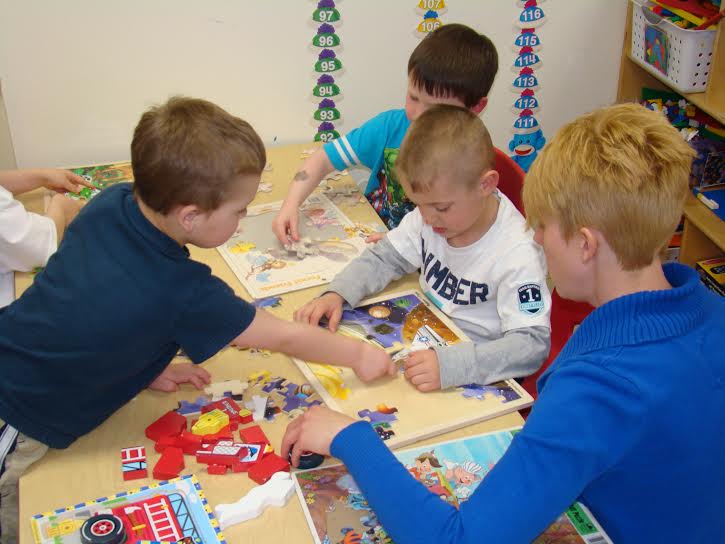Graduate students struggle to find affordable child care, GPSS and university working toward a solution
Iowa State is offering a new staff orientation program to give professional development to child care center staff, directors and supervisors all over the state of Iowa.
December 5, 2018
Many graduate students at Iowa State face challenges when it comes to getting child care on campus, chief among them include accessibility and affordability.
The president of the Graduate and Professional Student Senate, Norin Yasin Chaudhry, is working closely with university administrators to try and find a long-term solution.
One of those administrators is Julie Graden, the program manager for the Iowa State Child Care and Family Resource Services.
“What we hear and heard from the ISU campus climate study was that people have trouble with accessibility and affordability,” Graden said.
She also said that it was not a new problem, rather a multigenerational one. Graden said students and faculty have trouble finding child care, especially for infants and toddlers.
Child care is not a problem unique to Iowa State’s campus either, rather it is an issue facing the Ames community as a whole.
“The city of Ames has grown so fast, and you can find plenty of places to eat and live — but not so much for child care,” Graden said.
Funding is limited for every department at Iowa State and child care is no exception. Graden said giving more money to child care services would certainly help resolve the issues of accessibility and affordability but does not think the solution is that simple.
“We all have to be good stewards of our money,” Graden said. “The money comes from the state, it comes from tuition, and so I think the balancing of all budgets is tricky. So, the simple answer is to throw more money at it, but the realistic is, ‘Where would it come from?’ How much would we really need to make a difference?’”
Graduate students are often on a limited income, and their child care is partially subsidized by the university. Some graduate students are also eligible for scholarship programs that reduce child care costs.
Graden works to try and leverage these benefits to those most in need. However, even with these subsidies, many graduate students still have a hard time finding child care.
The typical graduate seeking child care for children under three years old is put on a waitlist for 18 months to three years, and the age of the child is probably the biggest factor in determining whether or not they are admitted, Graden said.The time of year can also be a big factor.
One obstacle facing the university when it comes solving the child care problem is trouble finding accurate statistics. Graden said there is no hard number of graduate students who need child care services.
One reason why child care statistics are difficult to determine is due to the sizeable international population of graduate students. Graduate students are given surveys in order to try and find out how many have children and may need child care services, but these methods are not perfect. The numbers surrounding graduate student child care needs are estimates as a result.
One thing Chaudhry is working on compiling information and statistics on graduate student child care.
“Let’s get everybody who is contributing towards child care in a room, look over all the information we have, and compile it together,” Chaudhry said. “They (the university) are working on that right now.”
Chaudhry and the university hope to have the information they need by January. A group will then be assembled by Iowa State President Wendy Wintersteen to meet and discuss more specific child care solutions.
















